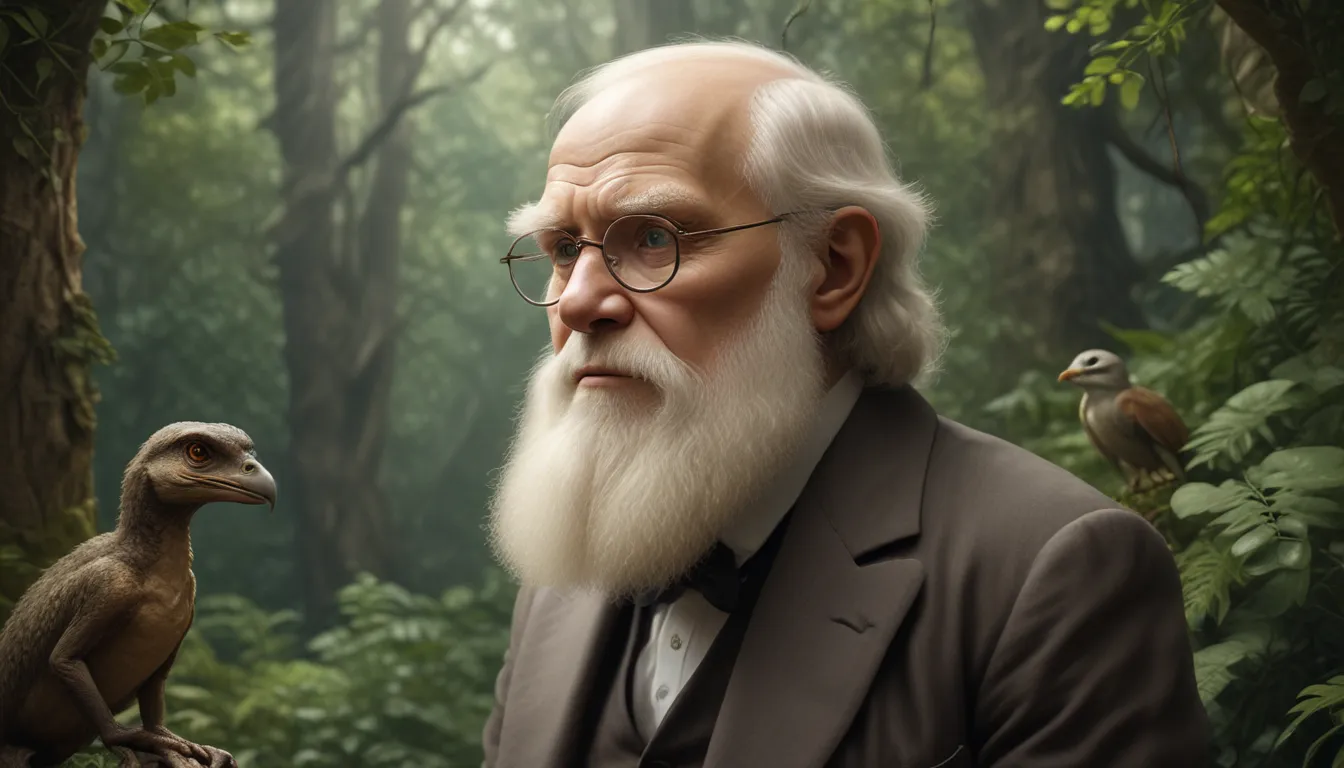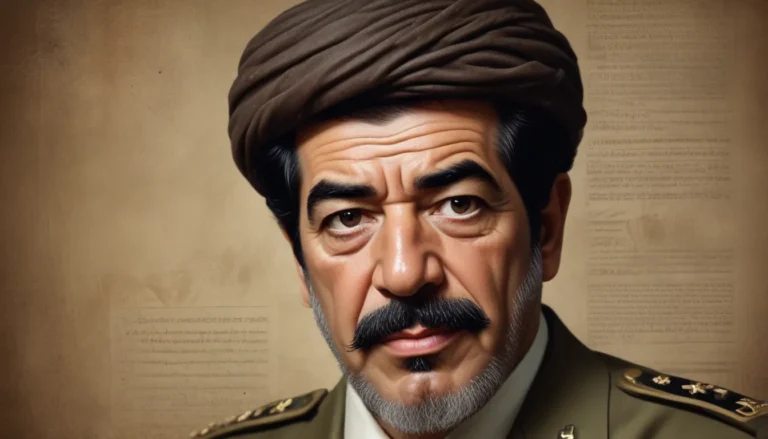The images in our articles may not match the content exactly. They are used to grab your attention, not to show the exact details in the text. The images complement the text but do not replace it.
Welcome to the enigmatic world of Dr. Charles Darwin, a brilliant scientist whose work continues to captivate and inspire generations of curious minds. Known for his groundbreaking theory of evolution, Darwin revolutionized our understanding of the natural world and the complexities of life on Earth. Join us as we unravel 13 unbelievable facts about this legendary figure, delving into his remarkable achievements and unwavering dedication to unraveling the mysteries of nature.
The Revolutionary Theory of Evolution
At the core of Dr. Charles Darwin’s legacy is his remarkable theory of evolution, which forever changed the landscape of scientific thought. Through his seminal work, “On the Origin of Species,” Darwin presented compelling evidence for the concept of natural selection, elucidating how species evolve over time in response to their environments.
A Voyage of Discovery on the HMS Beagle
In 1831, Darwin embarked on a transformative five-year expedition aboard the HMS Beagle. This epic journey took him across the globe, offering him invaluable insights into the geological formations, flora, and fauna of diverse regions. It was this expedition that laid the foundation for his revolutionary discoveries and evolutionary theory.
The Galapagos Islands: A Crucible of Evolutionary Insights
Among the most pivotal moments of Darwin’s voyage was his exploration of the Galapagos Islands. Here, he meticulously observed the unique species inhabiting the islands, noting key variations such as the diverse beak sizes and shapes among the finches. These observations formed a cornerstone of his theory of natural selection.
Embracing Controversy: Darwin’s Uphill Battle
Despite his groundbreaking contributions, Darwin faced vehement opposition and controversy upon the publication of “On the Origin of Species.” His theory challenged established religious beliefs and societal norms of the time. Nevertheless, Darwin remained steadfast in his pursuit of scientific truth, gathering evidence to support his revolutionary ideas.
The Hidden Depths of Darwin’s Research: Barnacles and Earthworms
Beyond his work on evolution, Darwin displayed a deep interest in the study of barnacles. He devoted a significant portion of his life to meticulously examining and classifying diverse species of these marine organisms, showcasing his relentless curiosity and dedication to scientific inquiry. Additionally, Darwin conducted extensive experiments on earthworms, recognizing their crucial role in soil fertility and ecosystem dynamics.
Nurturing a Love for Botany: Darwin’s Fascination with Plants
In addition to his evolutionary research, Darwin harbored a profound passion for botany. He devoted substantial time to studying plant species, conducting experiments on their movements and interactions with other organisms. This botanical exploration further enriched his understanding of the intricate web of life on Earth.
Overcoming Health Struggles: Darwin’s Resilience and Perseverance
Throughout his life, Darwin grappled with various health issues, including chronic headaches, stomach ailments, and heart palpitations. Despite these challenges, he tenaciously pursued his scientific endeavors, showcasing remarkable resilience and determination in the face of adversity.
Geological Insights and Contributions: Darwin’s Impact on Geology
Darwin’s voyage on the HMS Beagle provided invaluable geological insights that significantly contributed to the field of geology. His meticulous observations and studies of rock formations and fossils helped deepen our understanding of Earth’s history and the dynamic processes shaping our planet.
A Catalyst for Scientific Progress: Darwin’s Enduring Influence
Dr. Charles Darwin’s theory of evolution sparked a revolution in the scientific community, reshaping biology and laying the groundwork for modern scientific inquiry. His visionary ideas continue to inspire ongoing research and advancements in the field, propelling our understanding of the natural world to new heights.
Honors and Recognition: Celebrating Darwin’s Legacy
Throughout his lifetime, Darwin received numerous accolades and honors for his groundbreaking contributions to science. His revolutionary ideas earned widespread acclaim and respect, solidifying his place as one of the most influential figures in scientific history.
Legacy of Inspiration: Darwin’s Enduring Impact
More than a century after his passing, Dr. Charles Darwin’s legacy remains an enduring beacon of scientific progress and curiosity. His theory of evolution continues to shape our understanding of life’s diversity and intricacies, inspiring new generations of scientists to unravel the mysteries of the natural world.
Conclusion: Honoring a Scientific Pioneer
In conclusion, Dr. Charles Darwin’s legacy stands as a testament to the power of curiosity, perseverance, and scientific inquiry. His pioneering work on evolution and natural selection has left an indelible mark on our understanding of life on Earth, ushering in a new era of scientific thought and exploration. As we reflect on Darwin’s extraordinary accomplishments, we are reminded of the boundless possibilities of human curiosity and the enduring quest for knowledge.
Unraveling the Marvels of Evolution: FAQs
- What were Charles Darwin’s major contributions to science?
-
Charles Darwin’s major contributions include the theory of evolution by natural selection, as well as significant advancements in geology, botany, and natural history.
-
How did Charles Darwin develop his theory of evolution?
-
Darwin’s theory of evolution stemmed from his observations during the HMS Beagle voyage, leading him to formulate the concept of natural selection to explain the mechanisms of species diversification and adaptation.
-
Did Charles Darwin face opposition to his theory of evolution?
-
Yes, Darwin encountered opposition, particularly from religious groups, due to his theory challenging traditional beliefs. However, his ideas gained widespread acceptance within the scientific community over time.
-
What impact did Charles Darwin’s work have on biology?
-
Darwin’s work revolutionized biology by providing a comprehensive explanation for the origin and diversity of species, laying the foundation for modern genetics, ecology, and evolutionary biology.
-
Why is Charles Darwin’s work relevant today?
- Darwin’s theories remain relevant as they continue to shape our understanding of the natural world, with practical applications in fields such as medicine, agriculture, and conservation, aiding efforts to address current challenges and promote biodiversity.
Embark on a journey of discovery and enlightenment as we unravel the awe-inspiring legacy of Dr. Charles Darwin, a scientific pioneer whose work continues to shape our understanding of the world around us. Join us in celebrating the wonders of evolution and the profound impact of one of history’s greatest minds.






